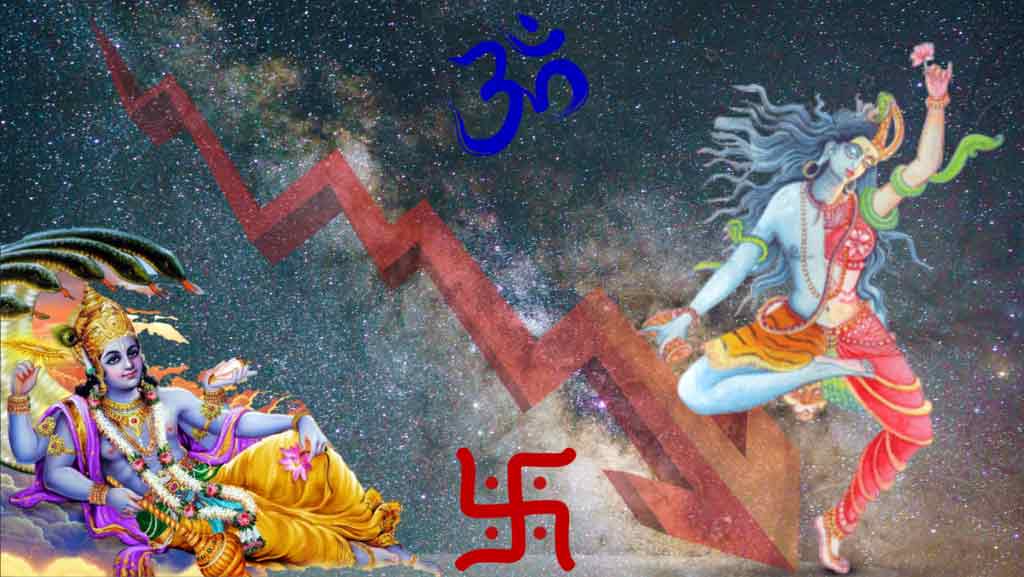For its spread and popularity, any religion needs to have three strong pillars:
Scriptures, religious role models, and complete faith in the religion. For Hinduism, the Vedas and Upanishads are the basic scriptures. Unfortunately, since the present Hindu community does not refer to or consult these books anymore, scriptures have vanished completely from the markets. The scarcity of these scriptures in the local markets has weakened the system, forcing the present generation of Hindus to rely on some hypocritical so-called mentors who falsely claim that their lectures can substitute the wisdom of the Upanishads, which is nothing but a bullshit claim, as per the online astrology consultant.
People are misrepresenting, misinterpreting, and misunderstanding the Mahabharata, Ramayana, and Geeta because the present generation of Hindus is oblivious to their original religious textbooks. Every other religion is extremely sensitive and conservative of their scriptures, whereas liberal Hindus have discounted and discontinued the culture of studying their sacred books in most of the average Hindu houses.
Respect
Respect for the great men or heroes from any religion is another extremely important aspect of the sustainability of any religion. Criticizing the characters and lives of the heroes, like Rama or Krishna, is a sign of libertarianism to neo-Hindus, whereas the due respect instead paid to them can beget unity, solidarity, and brotherhood. This fact has been notably observed in other religions like Sikhism and Jainism as to how they have flourished. Self-derogatory comments about our Hindu godly characters and attempts to ridicule and malign them are not helping us anyway but rather dragging us only in the backward direction. For sure, we are not transferring their ideologies to the next generation but only showing sheer indifference towards the heroes.
Faith
Faith in religion is the third pillar that gives us the confidence that practicing it will lead us to the absolute truth or the ultimate happiness. If the modern educated neo-Hindus dilute this belief by saying everything is relative and that for each individual, their path is correct, then that moves us away from the correct path of the religion. People now define happiness solely as the satisfaction of the ego in complete freedom, and they hardly believe their religion can transport them to the happiness they seek throughout their lives. Colonialism and ruling over us for centuries have made us think in such a way that our religion is weak and we have to follow others’ footprints to do well.
This is untrue; this is a mockery of how our age-old religion is treated as a fashion nowadays, amongst the educated class, and it is backed by some cheap media who run after some TRP. A proactive, passionate approach towards culturing and nourishing the inner strength and core of the religion will revive it. The procedure has already begun, but we have to keep our patience and immerse ourselves in this revolution.
In today’s world, our Hindu rituals are practiced by some genuine astrologers, pandits, tantriks and online astrology consultants.
Chronology of World Religions
2300 BCE to 1500 BCE – Hinduism.
600 BCE to 500 BCE: Judaism.
600 BCE to 400 BCE: Buddhism.
1st century CE: Christianity.
7th century CE: Islam.
16th century CE: Sikhism.
Size of major religious groups, 2020 [1]
Religion Percent
Christianity 31.11%
Islam 24.90%
Unaffiliated 15.58%
Hinduism 15.16%
Buddhism 6.62%
Folk religions*¹ 5.61%
Other religions: 0.79%
Hinduism
Hinduism, despite its age, has never actively converted people, while British and European countries, through conquest and colonialism, converted people in continents like Asia and Africa, increasing the Christian population. Islam has an agenda to increase the world’s population, and so around the globe, they are strategic in active conversions and building up the new generation so that they can outnumber other religions. Unlike this, Hindus have never actively tried to spread their philosophy beyond their native Indian subcontinent but rather have embraced those who are moved and motivated by its might and enigma.
Nevertheless, at times great men like Swami Vivekananda and Swami Prabhupada travelled across the globe to introduce the world to Hinduism and Vaishnavism, but still, these attempts were seemingly on a smaller scale, where we had the presence of European forces in our country for more than 200 years. There is a sheer decrease in the Hindu population in countries like Bangladesh and Pakistan due to several reasons and little help from the government for their sustenance and growth as said by an online astrology consultant.
Conclusion
In India, we have seen a rise in the Hindu population, but the percentage rise is lagging since the Islamic population is outnumbering the Hindu growth rate due to several other reasons. However, in the Western world, people have migrated to Hinduism and have turned to ISKCON not by force but by pure love and by the obviousness of its liberal philosophy. Let’s now discuss in detail why we see some weaknesses in the Hindu community.

